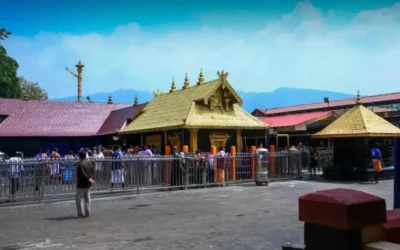Bhagavad Gita, Natyashastra added to UNESCO’s Memory of the World Register

[[{“value”:”
In a significant recognition of India’s cultural legacy, the Bhagavad Gita and Bharat Muni`s Natyashastra have been inscribed in UNESCO’s Memory of the World Register, Union Culture and Tourism Minister Gajendra Singh Shekhawat announced on Friday.
These revered Indian texts are among 74 new documentary heritage collections selected for inclusion in the 2025 edition of the register. According to UNESCO, the newly added entries represent pivotal milestones in the history of scientific revolutions, women`s contributions, and multilateral cooperation, submitted by 72 countries and four international organisations.
The announcement coincides with World Heritage Day (April 18), which is marked globally to promote awareness of the importance of preserving both natural and cultural heritage.
Calling it “a historic moment for Bharat’s civilisational heritage,” Minister Shekhawat posted on X (formerly Twitter): “The Shrimad Bhagavad Gita & Bharat Muni’s Natyashastra are now inscribed in UNESCO’s Memory of the World Register. This global honour celebrates India’s eternal wisdom and artistic genius.”
He further noted, “These timeless works are more than literary treasures—they are philosophical and aesthetic foundations that have shaped Bharat’s world view and the way we think, feel, live, and express.”
A historic moment for Bharat’s civilisational heritage!
The Shrimad Bhagavad Gita & Bharat Muni’s Natyashastra are now inscribed in UNESCO’s Memory of the World Register.
This global honour celebrates India’s eternal wisdom & artistic genius.
These timeless works are more than… pic.twitter.com/Zeaio8OXEB
— Gajendra Singh Shekhawat (@gssjodhpur) April 18, 2025
Prime Minister Narendra Modi also hailed the development, calling it “a proud moment for every Indian across the world.”
“The inclusion of the Gita and Natyashastra in UNESCO`s Memory of the World Register is a global recognition of our timeless wisdom and rich culture. The Gita and Natyashastra have nurtured civilisation and consciousness for centuries. Their insights continue to inspire the world,” PM Modi posted on X.
A proud moment for every Indian across the world!
The inclusion of the Gita and Natyashastra in UNESCO’s Memory of the World Register is a global recognition of our timeless wisdom and rich culture.
The Gita and Natyashastra have nurtured civilisation, and consciousness for… https://t.co/ZPutb5heUT
— Narendra Modi (@narendramodi) April 18, 2025
The Bhagavad Gita, part of the Mahabharata, is one of the most revered spiritual texts in Hindu philosophy, offering profound insights on duty, morality, and devotion. Natyashastra, attributed to sage Bharat Muni, is an ancient treatise on dramaturgy and performing arts, considered foundational to Indian classical dance, music, and theatre traditions.
With these additions, India now has 14 inscriptions in the Memory of the World Register.
UNESCO’s Director-General Audrey Azoulay underscored the importance of preserving humanity’s documentary heritage.
“Documentary heritage is an essential yet fragile element of the memory of the world,” she said in a statement. “This is why UNESCO invests in safeguarding—such as the libraries of Chinguetti in Mauritania or the archives of Amadou Hampâté Bâ in Côte d’Ivoire—shares best practices, and maintains this register that records the broadest threads of human history,” Azoulay said in a statement.
The total number of collections in the Memory of the World Register now stands at 570, representing a vast tapestry of global intellectual and cultural memory.
“}]]
Search
Recent
- Bogota ends one year of climate-induced water rationing
- CM Revanth Reddy urges Telugu people to unite for Telangana’s global development
- Who is Indian-origin Dr Nikku Madhusudhan, the scientist who found evidence of life 120 light-years away from Earth
- Confirmed: Long delayed Nasa-Isro’s joint mission ‘NISAR’ to launch in June
- Snapshots of survival: Endangered sea turtles make a comeback in over half of global habitats





